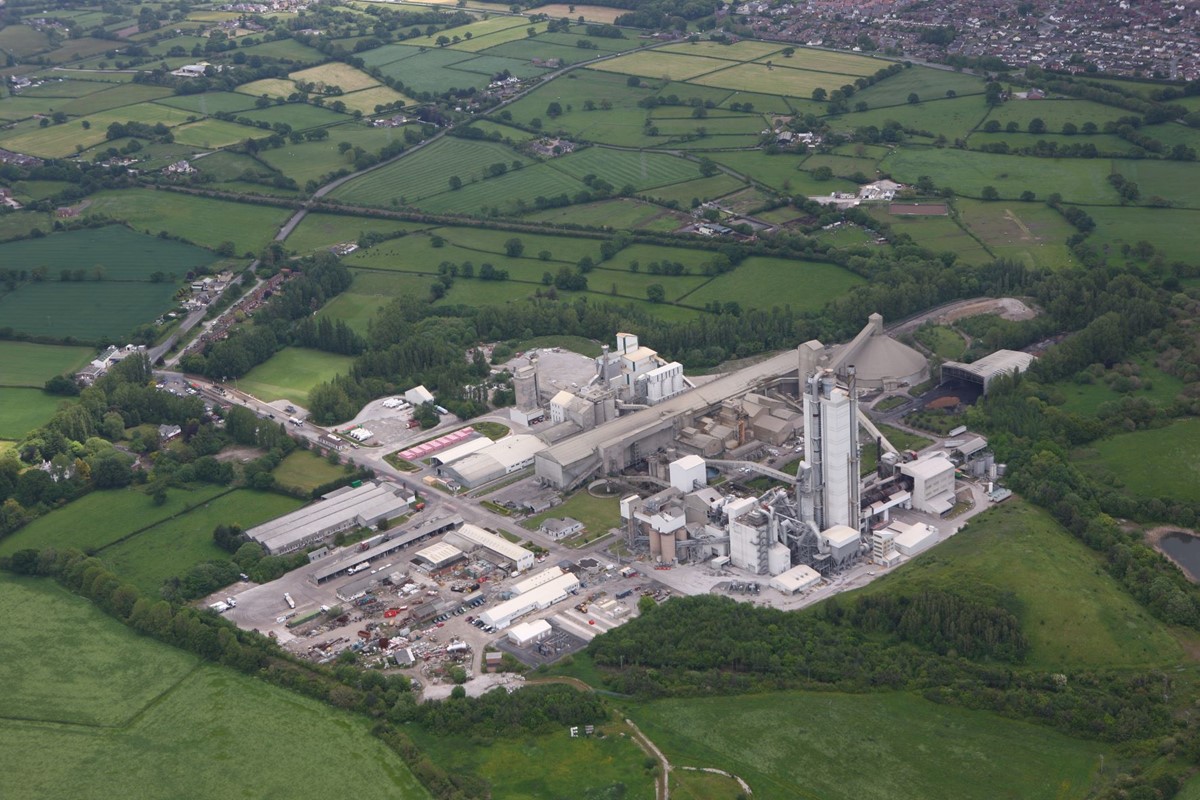Building aggregates supplier Heidelberg Materials UK is pressing ahead with plans to spend £400 million, converting Britain’s first cement plant to run on carbon capture use & storage (CCUS) technology.
The firm today appointed energy engineers Worley to oversee design of the Padeswood factory’s conversion in north Wales, in partnership with Mitsubishi Heavy Industries Group.
Converting the producer to CCUS is earmarked to sequester as much as 800,000 tonnes of CO2 every year, nominally equivalent to taking nearly a third of a million cars off British roads.
The partners’ work on their front end engineering & design (FEED) contract will support Heidelberg towards a final investment decision, with conversion scheduled to begin early next year.
Cement production is highly carbon-intensive, and hard to abate with renewable energy or other low CO2 sources. Heidelberg look on CCUS as essential to reducing their product’s harmful emissions. It is already working to convert its plant in Brevik, Norway to the protocol.
The Flintshire plant has been selected by the UK government as a Track 1 carbon capture project, a cornerstone venture within the north west’s HyNet industrial cluster. Planning approval and financing grants are yet to be secured.
After natural gas is burned in making the cement, captured carbon dioxide will be pumped more than 32km through HyNet’s pipeline, to a store 1 km below the seabed of Liverpool Bay.
Heidelberg’s outline assumption is Padeswood’s CCUS stack will create over 50 fulltime jobs at the plant, and clear a trail to thousands more in UK carbon neutral cement.
Its UK CEO Simon Willis said: “This is a decisive next step in our plans to install carbon capture technology at Padeswood. Once operational, it will provide Net Zero building materials for major projects across the country, enabling us to help decarbonise the construction industry and meet our ambition to become a Net Zero business.”
Worley’s team will carry out the engineering design through its teams based in four UK cities. Marino Barbi, the company’s senior UK vice president, said “Padeswood is a landmark project in the UK’s decarbonisation strategy and aligns with our commitment to contributing to a more sustainable world.”
“Securing this contract is not only testament of the strength of our relationships with Heidelberg Materials UK and MHI but also reflects our execution of the pre-FEED and our team’s expertise in delivering FEED services for first of a kind CCUS facilities”.
Heidelberg Materials UK has committed to reaching net zero carbon by 2050.
Its CEO Simon Willis said: “This is a decisive next step in our plans to install carbon capture technology at Padeswood. Once operational, it will provide net zero building materials for major projects across the country, enabling us to help decarbonise the construction industry.
More details on the £400 million Padeswood conversion are here. Heidelberg Materials was known until 2007 as Hanson.




